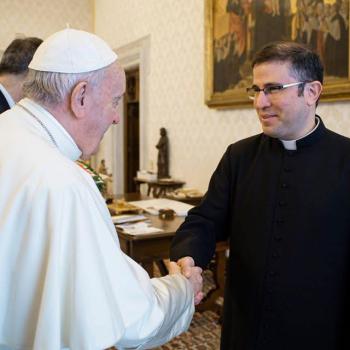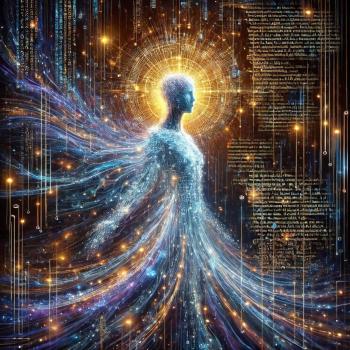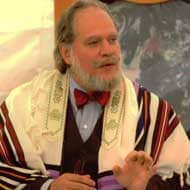By Reb Bahir Davis
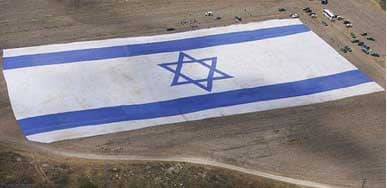 Earlier this year, Prime Minister Benjamin Netanyahu stated to George Mitchell, the U.S. envoy, that "Israel expects the Palestinians to first recognize Israel as a Jewish state before talking about two states for two peoples."
Earlier this year, Prime Minister Benjamin Netanyahu stated to George Mitchell, the U.S. envoy, that "Israel expects the Palestinians to first recognize Israel as a Jewish state before talking about two states for two peoples."
"The recognition of Israel as the sovereign state of the Jewish people is an essential and necessary step in the historic process of reconciliation between Israel and the Palestinians. The more the Palestinians assimilate this fundamental and substantive fact, the sooner the peace between the two peoples will progress toward fruition," the ministry said.
Mahmoud Abbas responded, "I do not accept it," in a speech in Ramallah, in the West Bank. "It is not my job to give a description of the state. Name yourself the Hebrew Socialist Republic -- it is none of my business," he added, according to Reuters News Agency.
There are fundamental questions underlying the exchange. First among these is the question: Is Israel a Jewish State?
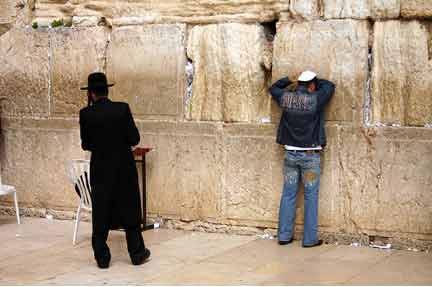 Saudi Arabia has said that Israel cannot be called a Jewish country when 20% of its population is made up of Muslims. The statistics from 2006 are: 76.1% Jewish, 16.2% Muslim, 2.1% Christian, and 1.6% Druze, with the remaining 4.0% not classified by religion according to Israel's Central Bureau of Statistics.
Saudi Arabia has said that Israel cannot be called a Jewish country when 20% of its population is made up of Muslims. The statistics from 2006 are: 76.1% Jewish, 16.2% Muslim, 2.1% Christian, and 1.6% Druze, with the remaining 4.0% not classified by religion according to Israel's Central Bureau of Statistics.
Saudi Arabia has some right to make such a claim considering that 100% of its population is Muslim. Jews, with rare exception, are not allowed to set foot in the country.
But there are many other Muslim countries, many of which do have minority religions. There are fifty-six members of the Organization of the Islamic Conference (OIC). There are twenty-two countries in the world in which some form of Christianity is the official religion and twenty-four countries in which Islam is the official religion. There are five countries in which Buddhism is the official religion and two countries in which Hinduism is the official religion.
 "THE STATE OF ISRAEL will be open for Jewish immigration and for the Ingathering of the Exiles; it will foster the development of the country for the benefit of all its inhabitants; it will be based on freedom, justice and peace as envisaged by the prophets of Israel; it will ensure complete equality of social and political rights to all its inhabitants irrespective of religion, race or sex; it will guarantee freedom of religion, conscience, language, education and culture; it will safeguard the Holy Places of all religions; and it will be faithful to the principles of the Charter of the United Nations." (from The Declaration of the Establishment of the State of Israel, May 14, 1948)
"THE STATE OF ISRAEL will be open for Jewish immigration and for the Ingathering of the Exiles; it will foster the development of the country for the benefit of all its inhabitants; it will be based on freedom, justice and peace as envisaged by the prophets of Israel; it will ensure complete equality of social and political rights to all its inhabitants irrespective of religion, race or sex; it will guarantee freedom of religion, conscience, language, education and culture; it will safeguard the Holy Places of all religions; and it will be faithful to the principles of the Charter of the United Nations." (from The Declaration of the Establishment of the State of Israel, May 14, 1948)
Many times asking one question raises others. For example: What does it mean to be a Jewish state? Israel is defined in several of its laws as a democratic Jewish state. However, the term "Jewish" is a term with many possible meanings that can relate equally to the Jewish people or religion. It may not be completely accurate to say that Israel has an established religion.
The question of whether or not Israel is a Jewish State begs the question: How does one define a Jewish State? According to Orthodox Jews, to be a Jewish State is to be governed by Halacha (understood to mean Jewish Law). This view parallels the Muslim call for all Islamic states to be governed by Sharia (Muslim Law). Since Israel's inception there have been compromises between the Jews who believe and follow one of the traditional models of Halacha, Jews who have more liberal views of Halacha such as the Reform movement, and the Hiloni or secular Jews of Israel.
